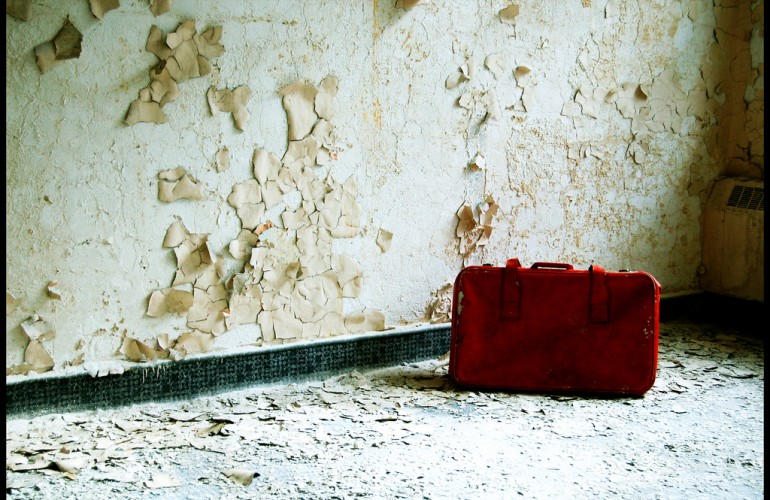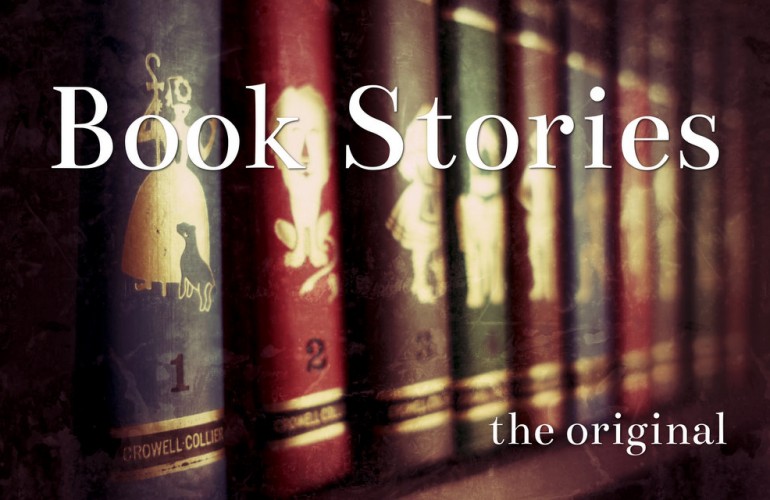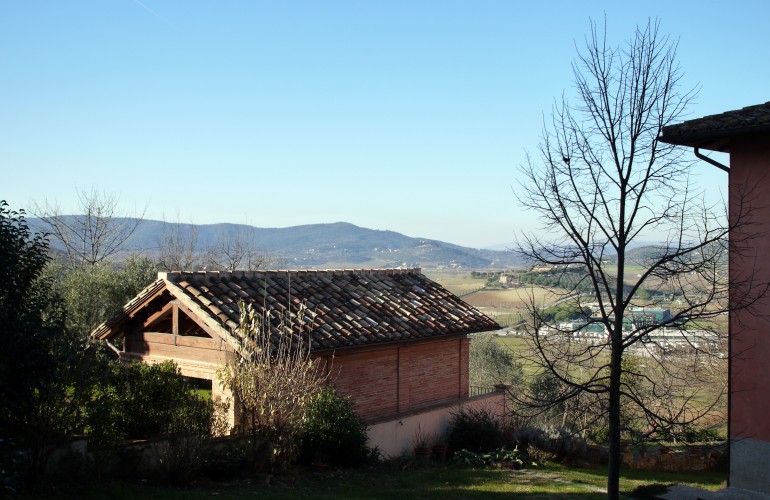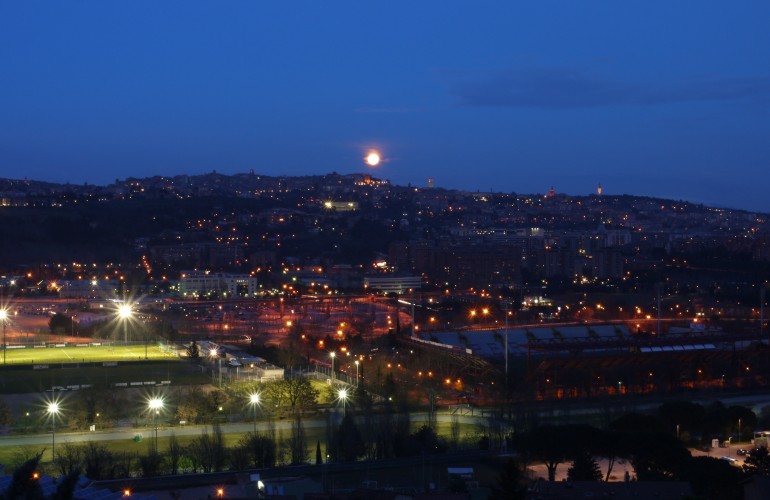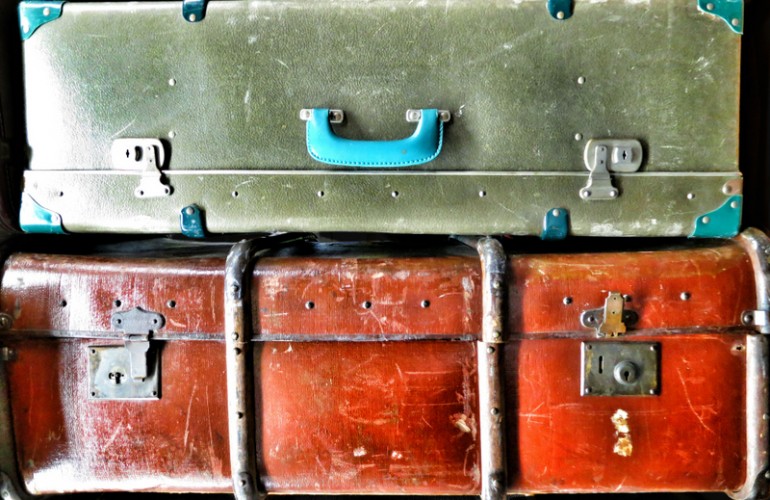You may have seen the recent announcement that Deeper Story is closing its doors. It’s hard for me to imagine the upcoming year without it, both from a reader’s perspective and as one of its writers. That site has consistently swept my generalizations and misconceptions of Christianity off their feet. It’s answered the question of why we believe what we believe through the medium of story, and I’m going to miss it like I miss Blue Bell ice cream.
Before it closes though, I’m getting to share one last story. I wrote about it here on my blog back when the events were unfolding, but they’ve grown in significance and clarity since then, picking up new dimensions in their expanding context. This is the more complete story of our move to Italy. It’s also a study in modern-day miracles.
Part 1 of 2 is up today (Part 2 will go up in a few weeks before Deeper Story closes):
[Ed: Now that Deeper Story has closed its doors, the post is here in its entirety:]
~~~
It’s not easy for me to think about the fall of 2007.
Actually, “not easy” is a wild understatement in this case. Opening pickle jars is “not easy.” Putting snow boots on a toddler is “not easy.” Willing my mind to revisit some of the most emotionally intense terrain of my life, on the other hand, is about two degrees this side of impossible. The anxiety is still there. So are the first discordant notes of depression. Upheaval, insecurity, a sense of displacement so strong I could drown in it—they’re all there, preserved museum-quality in the halls of my memory.
But then again, so are the miracles. And that’s why I’m here again, two degrees this side of impossible, willing myself never to forget.
/ / /
My husband Dan, our two-year-old daughter Natalie, and I spent the summer of 2007 in total life limbo. We’d moved out of our home in Delaware at the end of May, fully expecting to ship ourselves and all our possessions out on the next flight to Italy. It was all set. Dan had been offered his dream job in the country we had long hoped to adopt as our own, and our bags were packed. Every step of the process so far had been ridged with God’s fingerprints. But then the paperwork we needed the Italian government to send us for our move was “delayed.” (This, as we later learned, is bureaucracy speak for “never gonna happen.”)
The documents didn’t arrive by our move-out date, and they continued not arriving over the next two months as we camped out in friends’ guest rooms and stretched every dollar left in our checking account as far as it would go. We were surrounded by grace in those two months; our friends’ generosity kept us afloat, and we were led again and again to trust that God had our backs despite the maddening bureaucratic roadblock. My pregnant belly was stretching along with our disposable income though, and we had to make a decision: We could either scrap this new direction for our life, or we could book a flight to Italy without the right paperwork or any guarantees and try to work out the details once we got there.
We chose Option #2.
Looking back, I turn green around the gills thinking about all the risks we took with that decision. So much could have gone wrong, and the fact that we arrived without incident on the doorstep of our very own Italian apartment that August is its own category of grace.
This isn’t to say though that the worry and upheaval through which my mind had waded all summer evaporated. If anything, my anxiety grew thicker, muddled by the confusion of a new language and new cultural customs and new everything down to the way we told time. (Dinner at “twenty-one minus a quarter,” anyone?) This newness was a mental barrier as real and high to me as the historic walls of our adopted city. I was petrified by the enormity of what I didn’t know.
Also, I was now squarely (roundly!) in my third trimester of pregnancy. Any mama who has cared for a two-year-old while massively pregnant can tell you that staving off exhaustion in itself can be a full-time job. My body was as weary as my brain, and I felt like I was always skirting the edges of the preterm labor that had complicated my pregnancy with Natalie. I lay trapped awake by worry every night. If I’d had any illusions about being in control of my life before that autumn, they’d certainly hoofed it back to the land of make-believe by now.
Then two things happened simultaneously to kick the intensity notch of my world up to Level Orange. The first was that Dan left on an eight-day trip back to the States to take care of the paperwork we had been unable to file all summer. The second was a familiar tightening across my lower belly that started one evening while I was eating dinner. I was thirty-three weeks along, the exact point I’d been in my first pregnancy when I’d gone into preterm labor. I began to have contractions that were sporadic and harmless, but the timing was enough to send me spiraling imagination-first into worst case scenarios.
I couldn’t shake my fear that our baby was going to be born prematurely while Dan was out of the country. And what if things went horribly wrong for him and he was denied reentry? My terror was so acute that it spliced itself onto my sense of reality. I felt stranded in this place, so far from friends and family, unable to communicate in my own language, responsible for a two-year-old who needed more energy from me than I was able to give. I sympathized with the Israelites in Exodus who wailed that God had brought them into the wilderness to perish.
Hadn’t he just done the same to me?
Abandoned, abandoned, abandoned. The refrain began at the epicenter of my fear and was soon taken up by every cell in my body. I knew I was being dramatic. I knew that basing my understanding of God on my current circumstances was not only poor theology but straight-up idiotic. I had been so uprooted by the past few months though that my better judgment couldn’t find solid footing. As I saw it in those panic-stricken moments, God had lifted us over the stacked odds and deposited us safely in Italy only to pull that sense of safety right back out from under me. This was it then, the punch line of whatever cruel joke he was playing on our dreams.
I felt more alone than I had ever been in my life—relationally, culturally, and spiritually desolate—and I didn’t have the courage for whatever was coming next.
Only, what came next turned out to be as far from what I’d predicted as abandonment was from the truth.
/ / /
[Continue to Part 2.]
